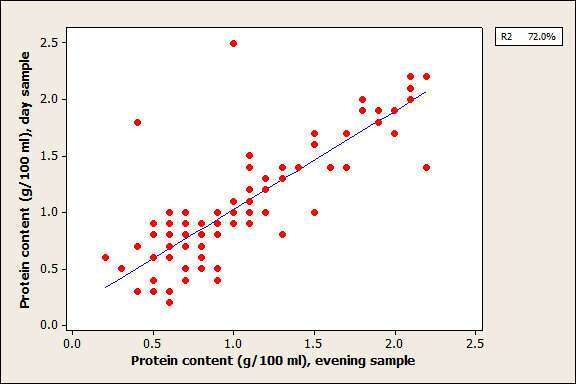Objective: To study diurnal variations of macronutrients and energy content of human milk (HM) expressed from mothers of preterm infants over first 7 weeks of lactation, and to test the hypothesis that values obtained during a morning sample are predictive of those obtained from an evening sample.
Methods: expressed HM was obtained from 33 mothers of preterm infants, born at 26-33 weeks gestation, who routinely expressed all their milk, every 3 hours, from the beginning of the second week to the 7th week after delivery. One aliquot was obtained from the first morning expression and the second from the evening expression. After homogenization, energy and macronutrients contents were measured using an HM analyzer.
Results: Mean fat and energy content were significantly higher in evening than in morning samples during the whole period (P< 0.0001). There were no significant differences between day and evening carbohydrate and protein concentrations. Day protein, carbohydrates and fat concentrations were predictive of evening concentrations to different extents (R2 = 0.720, R2 = 0.574, R2 = 0.20, P<0.001). The predictability of evening values by day values was not influenced by the week of lactation at sampling or by individual patients.
Conclusions: Circadian variations in fat and energy concentrations of HM are consistent over the first 7 weeks of lactation. There are no consistent circadian variations in HM protein and carbohydrate. Over a given single day, there are very little variations in protein and carbohydrate content, but evening fat concentrations are less well predicted by a morning sample analysis.


